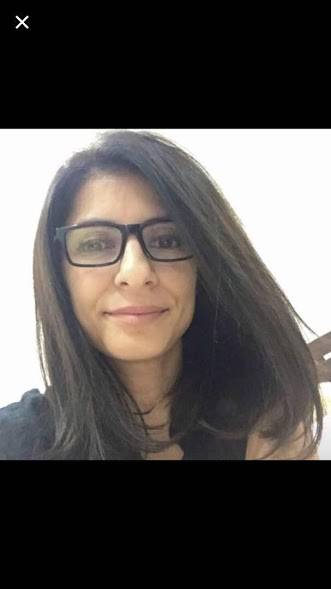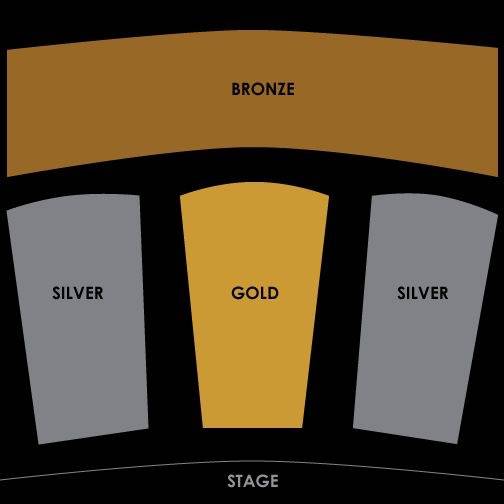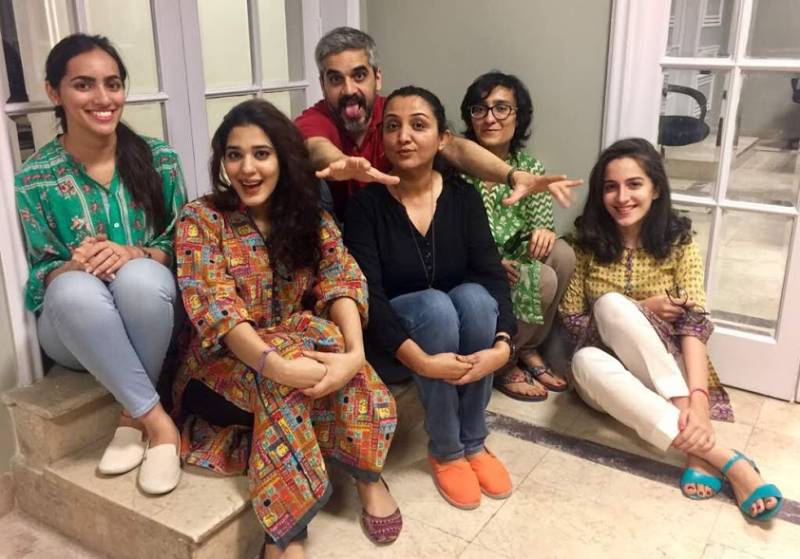The moment one steps into the rehearsal room of Dil-e-Nadaan, one can tell they have great chemistry and electrifying energy. It is an Urdu adaptation of Neil Simon’s comedy play The Last of the Red Hot Lovers adapted by the very talented Jawad Daud.
“Jawad has done a fabulous job. He has kept the original flavor but made it very local and relatable. The twists are hilarious. Lahore will love it,” Huma Ijaz, the founder of LATZ told us. “We are all set to hit the Alhamra Cultural Complex, Mall Road on the 27th, 28th and 29th of April 2017 and we promise to make it worth every rupee charged!”
About the plot, Huma agreed to reveal as much as "It is a story of a middle-aged, married man, Yawar who hits a midlife crisis, and is desperate to fulfill his fantasies and live life to the fullest. But he fails. Miserably. More than once. It is basically the same plot as Neil Simon with a few surprise twists, brilliant local humour and a thought provoking message.”

LATZ, Lahore Amateur Theatre Zealots, is a theatre company recently established by Huma Ijaz Zaman, Tughral Turab, Tulin Khalid and Omair Rana. All four of them are extremely excited about their debut project and are determined to revive theatre in Lahore. All of them have parallel careers but they have been devastated by the continuous downfall of theatre in Lahore, ironically the city once famous for its Arts and Culture. ”We saw theatre and drama dying in Lahore and that is unacceptable to us,” Huma told us when asked about the origin and objective of LATZ. “People of our city deserve good quality parallel theatre and we plan to bring it back by providing a platform for any thespian who wants to use it. This time it’s Omair, next time it can be someone else. We just want quality work which has solid content, provides quality entertainment and is lucrative enough to attract all those who left theatre to make a living elsewhere.”
The cast includes the maestro of Lahori Theatre, TV and Film Actor, recently more commonly known as Safi Ullah from Sange Mar Mar, Omair Rana himself. He plays the lead and is also directing it. Omair’s name is amongst the first ones to be mentioned when theatre in Lahore is discussed. He has had to unfortunately move his focus to TV, teaching and management consultancy because he has a family to feed and sadly, theatre in Lahore does not allow that consistently.
Muneera Batool is assisting Omair. Muneera is a thespian herself and has worked with Claire Pamment at BNU and Iram Sana at Olomopolo. She has recently received the Full Bright Scholarship for Theatre and Inter Disciplinary Digital Media and is getting geared up to study is the USA come September. “Only to return and pursue theatre as my full time line of work,” Muneera said with a determined smile.


Tulin Khalid

Huma Ijaz Zaman
The rest of the cast includes four lovely ladies for three characters. Yes, you read that right! Nadia Afgan a renowned theatre, TV and Film actor will be playing one of the leads. Her powerful performances in Sarmad Khoosat's Manto, Sheher-e-Zad, and the currently on air play Sammi have impressed most of us. “It feels great to be back on stage after so many years,” Nadia told us. “I shifted towards TV and Film because I got disheartened with the quality of work in theatre. The likes of Zain Ahmed departed from the theatre scene in Lahore and the remunerations were disappointing.” A few factors whose shift towards the better can convince a lot of people like her to return to stage.
Zainab Ahmad, another refined stage and TV actor, recognized for her work in Aabroo and Dua, out of several others, is also part of the team. Zainab also moved towards TV from theatre. “I was very excited to return to the stage as a part of Dil-e-Nadaan because of its strong script and excellent team.” If given a choice, Zainab would also prefer theatre over TV, but perhaps not film, something she would love to do.
The two other young female leads are Mariam Wardah, a pharmacist by profession and Rasti Farooq, an English Literature grad from LUMS. Both are passionate thespians at heart and expressed their dream to make theatre their main line of work, only if their families would feel more comfortable with the people and perceptions attached with it. “Who we work with, and what characters we play matter to our families, and we respect that. The only reason why we were allowed to perform in Dil-e-Nadaan was because of the team. It would be fantastic if more such people join the industry and make theatre what it once used to be.”
Talking about the Alhamra Arts Council, Huma told us, "Both Kamran Lashari and Zulfi have expressed their sincere desire to promote quality, parallel English and Urdu theater and we are very grateful to them for the gracious cooperation they've extended." She did not share the same sentiments about the Punjab Government though, because of the 20% tax charged on tickets. This tax is not on tickets sold, but on each ticket they plan to sell. “We feel theatre should be subsidised, not taxed,” said Huma, perturbed by the government policy, or a lack thereof, in planning and promotion of Art and Culture in Punjab.“People of our city are entertainment deprived and have stressful lives. So many people want to do stage but are reluctant because it's neither lucrative nor sustainable. We need to promote it not bury it," she added while requesting the government to revise their policy and provide opportunities to anyone who wants to work in this field.
The tickets have been sold for Rs 500, Rs 1000 and Rs 2000 labeled as Bronze, Silver and Gold respectively; a division made depending on the location of the seat.

Huma was very excited to further add “Lahore has made us proud. The Gold tickets are sold out and the others are selling fast. We kept hearing that they are pricey, but we stuck to our decision. We want to promote good theatre and people should learn to pay for theatre. Lahoris have always been more than willing to pay for food and now cinema, so why not theatre? Karachi plays, when staged in Lahore, still attract full houses on payment. We promise we will make it worth your while!”
“Selling tickets not only encourages the culture to appreciate and encourage the activity, which requires endless days of rehearsal, but also puts pressure on us actors to give our absolute best,” said Omair who wholeheartedly supports the idea of tickets. “None of us want to be sued for bad acting by an upset customer demanding his money and time back.” He further added, “World over, the tickets are priced according to the seats. It is unfair to charge the same amount even if you are watching the play from behind a pillar! Moreover, a special discount for students is also being offered.”
That is some smart price discrimination in practice guys!

Cast, behind the scenes
Meeting the team before and behind the scenes of Dil-e-Nadaan is, in one word, reassuring. To know that Urdu comedy theatre will be back at Alhamra come Thursday, with an audience who willingly paid to be there and the cast that has worked for hundreds of hours blocking their moves and learning their lines, makes one believe that as a nation, we still stand a chance of revival.
So, if you haven’t yet got the tickets, and are intrigued about the misery poor Yawar experiences, grab them now from HKB DHA or HKB Gulberg or call 0321-4242356 for home delivery.
After all, what is there to lose? If nothing else, we will all get a third party experience of men in our lives hitting a midlife crisis; the probability of which is as high as the revival of theatre in Lahore by the likes of LATZ!






